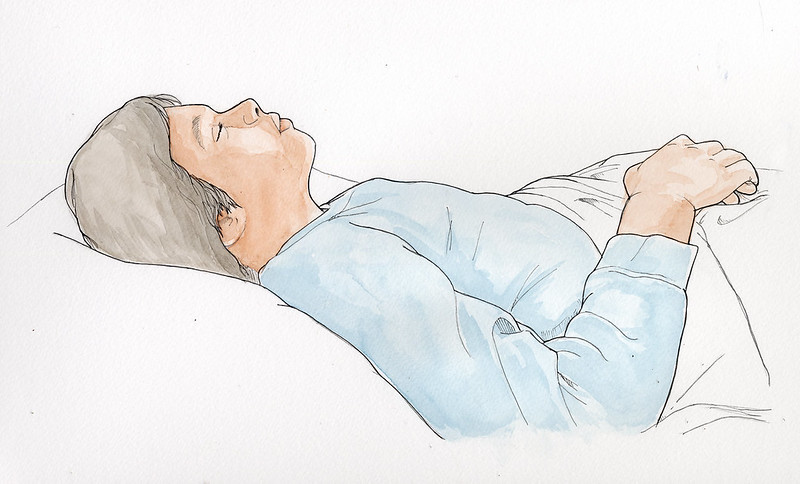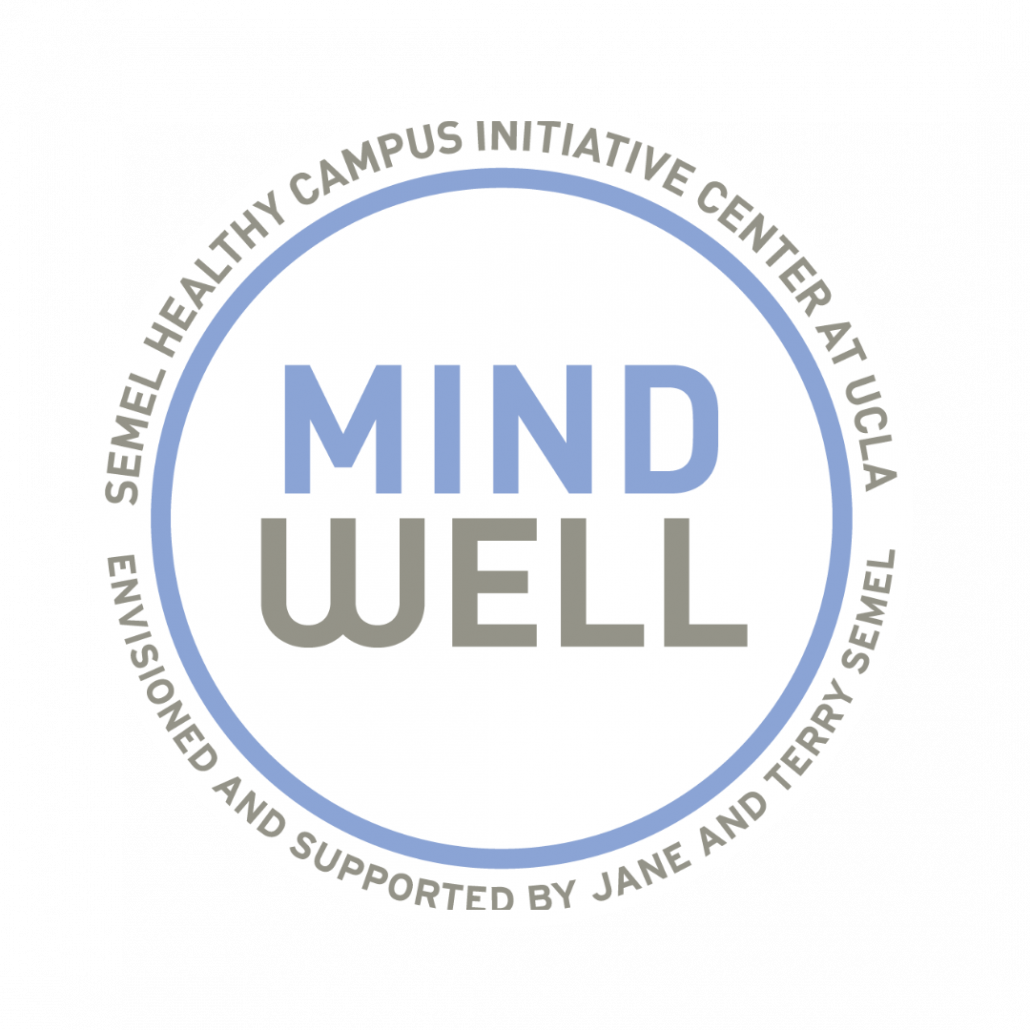Finding Routine amidst Chaos
If you’re like me, you may have struggled to establish a routine over the past few months. It’s hard enough to find a daily rhythm as a college student with a jam-packed schedule that varies by day. Add to that a pandemic and pressing racial injustice concerns, and your daily rituals might not be top of mind.
However, finding a sense of personal routine is still possible. It’s also necessary – routines support our mental well-being and productivity. Therefore, successful routines enable us to navigate uncertainty in school or work, serve our communities, and practically advocate for social change.
Stress less by creating structure
A daily routine provides a grounding sense of familiarity. When so much of the world is unpredictable, how we approach our day is sometimes the only thing we can control. Dr. Nicole Green, Executive Director of UCLA Counseling and Psychological Services and co-leader of the MindWell pod, affirms that a solid routine helps us to feel more calm. “It’s very easy to feel less stable when you don’t have a daily routine. It certainly impacts mood,” Dr. Green says.
A concept known as “decision fatigue” may be at play here. Psychologists have found that the more decisions we make in a day, the more mentally depleted we become. Without a solid routine, we are constantly asking ourselves, “What should I do now? And now? And now?” Those moment-to-moment decisions add up to deplete our mental resources, causing us to work less efficiently and feel overwhelmed.
While we inevitably face choices as a part of life, routines can reduce the number of effortful decisions we have to make. For example, completing daily activities such as eating, exercising, or chores at the same time every day automates those decisions and frees up mental space for more important tasks. Dr. Bob Bilder, UCLA’s Chief of Medical Psychology and co-leader of the MindWell pod, suggests, “Program your meals – this is a great time to start a mindful eating practice. Plan when you’re going to eat, what you’re going to eat, and then savor it. Don’t multi-task while you’re eating. Just eat!”
Additionally, going to sleep and waking up at the same time every day boasts a multitude of benefits, leaving you feeling more refreshed. “A regular sleep-wake cycle is almost as important as getting enough sleep in total,” Dr. Bilder says.

Consider your morning routine. When you first wake up, do you check your text messages? Do you think through the options for what to do after getting out of bed? Even these small moments contribute to decision fatigue. When you automatically know what you’re going to do after waking up (this can be as simple as brushing your teeth and eating breakfast), you can enter your day feeling a little more grounded. Check out this article for more morning routine tips.
It doesn’t have to be complicated
In fact, it shouldn’t be.
Imagine yourself in this scenario. At the start of a new quarter, you think to yourself, “I’m going to wake up every day at 6:00 am, meditate for 30 minutes, go for a run, and then start my work at 9:00 am!” Last quarter, you woke up at 9:00 am every day, ran three times per week, and completed your work mostly in the evening. In any case, you try out this new routine for a few days in an attempt to improve yourself and feel accomplished. But, you can’t summon the willpower to stick to it, so you end up scrapping the morning routine altogether.
Many UCLA students have had a similar experience. Of course, an extensive 6:00 am morning practice works well for some people. However, setting a rigid schedule that isn’t true to how you usually live isn’t exactly setting yourself up for success. “You’re not a failure, you just set up a routine that wasn’t based in who you are,” Dr. Green says. Make a routine that flows with your preferences and needs, rather than one that runs against the current.
Having flexibility and compassion towards ourselves is essential, especially when times are hard. Dr. Green encourages people to adopt an 80% rule for their routines. Rather than setting either an extreme routine or none at all, create a routine you can stick to 80% of the time. 80% is certainly better than 0%! “Seeing those successes is really important,” Dr. Green reminds students.
Protect against procrastination
Even when we have a solid routine, sometimes we still avoid it. Dr. Green provides the following tips to manage procrastination.
Don’t clear your schedule. Clearing your schedule to get more work done gives the illusion that you have endless amounts of time, so you end up wasting a lot of time too. You’ve probably found that when you’re busier, you’re more productive. Even if you don’t have a job or class to physically show up to, see if you can find ways to implement that structure. Maybe it’s scheduling study time with a friend, or holding yourself accountable to a family member or professor to meet a deadline. Blocking off time for relaxing activities can encourage you to finish your work in the remaining hours, too.
Recognize the difference between worry and effort. It’s common for us to worry about studying or job applications instead of actually studying or applying. This is because worrying almost makes us feel like we’re doing the task. Of course, this is not helpful – not only are you not getting anything done, but you are spending time feeling stressed. “If you’re not going to do the thing, then don’t worry about the thing,” Dr. Green advises. Next time you observe yourself worrying but not putting in effort, see if you can let go of that worry and make a conscious choice to either take action or not.
Approach, not avoid. Sometimes when we avoid something, it’s because our mind is making it seem more daunting than it really is. Ask yourself, can I work on this paper, read this book, or do this workout for just five minutes? Shifting the goal from perfection to progress can make tasks feel more doable.
Balance rest and activity
Creating a daily routine is also a great opportunity to block off time for self-care. “Give yourself breaks. Be kind to yourself,” Dr. Bilder encourages. “When we ‘program’ ourselves, we almost all overdo it. The Maharishi Mahesh Yogi always highlighted the importance of balancing rest and activity.”
Finding this balance requires getting honest with yourself about how much time you actually spend working. “Note that most people cannot really concentrate for hours on end…managing 20 minutes to 40 minutes in a stretch is usually great,” Dr. Bilder says. Rather than planning to work for eight hours straight, consider breaking up your work into shorter spurts.
For the remainder of your day, think about the self-care activities you want to incorporate. What brings you joy? What helps you feel calm, present, alive? Is there a hobby you want to make time for? Programming social time into your schedule is also an essential piece to consider.

As you determine which activities blend well into your schedule, keep remembering to be self-compassionate and self-accepting. Below, members of the Semel HCI community share some simple practices they’ve been implementing over the past few months to take care of themselves.
“I’m really grateful that my apartment building has a rooftop space where I can practice yoga or do a short workout every day. Exercise and fresh air have both been fundamental in keeping my mental health in check, and yoga has been especially helpful in calming any anxious thoughts I might be having.”
“At the end of the day, I always try to reward myself with something that I enjoy doing. To me, this has been baking. Not only does it take my mind off of academics, I am able to treat myself with something tasty! Other rewarding activities could also mean simple things like a stroll in the neighborhood, or just spending quality time with family!”
“I recently built a raised garden bed with my boyfriend’s family to grow our own vegetables. Every morning, the first thing I think about is how our veggies are doing. We’d spend the morning wild-eyed watching our plants grow and making sure they’re well watered for the day ahead.”
“One new routine I have developed recently is eating my meals on my balcony which overlooks the street. We have a fair amount of people walking around the neighborhood and I’ve found great joy in waving at everyone who looks my way. I don’t always get a smile or wave, but when I do, it’s a nice little burst of serotonin.”
“I’ve really tried to embrace the stillness of the morning. I think compared to UCLA mornings, I am a lot more free, a lot slower, to be honest. The mornings are an invitation to be mindful and set intentions for the rest of the day! I love to wake up, lay in bed for a few minutes, open my window, enjoy the sunshine, and read a bit. Allowing myself to calmly wake up allows me to have a calmer rest of the day. I then of course indulge in a homemade latte, write or listen to a podcast and get moving with a little walk. Then, school! Embracing the routine and serenity of the morning has really given me a sense of peace and control of my mental health during this difficult time.”
Emily Short is a 4th year UCLA undergraduate majoring in Psychology and Economics. In addition to blogging for the MindWell Pod, she is a project coordinator for a research study in the Dieting, Stress, and Health Lab. You can also find her drinking tea, reading, and practicing yoga.



